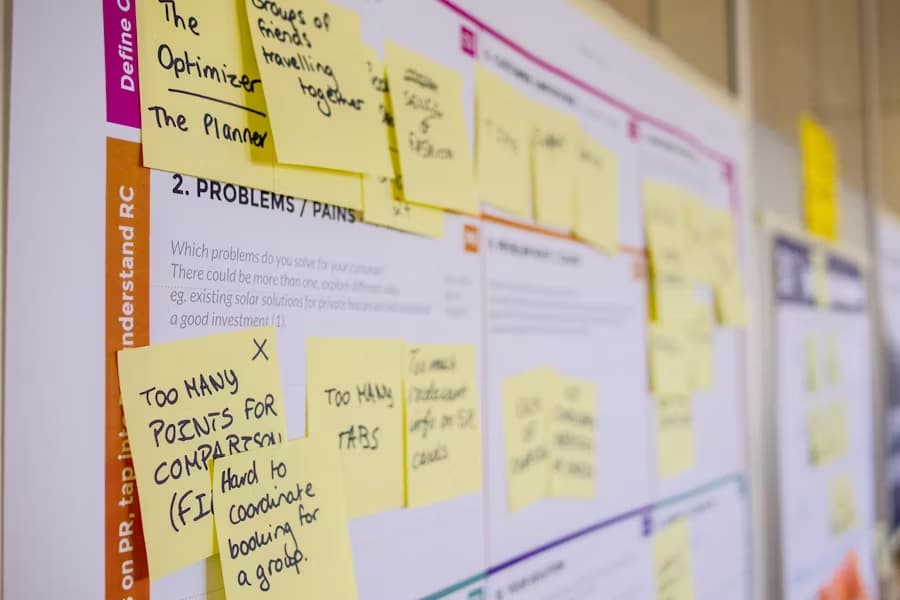In today’s fast-paced world, stress has become a common part of our daily lives. With the constant demands of work, family, and personal responsibilities, it can often feel overwhelming to keep up with everything. This is where effective time management comes into play. By learning how to manage our time efficiently, we can not only increase productivity and achieve a better work-life balance, but also reduce stress levels. In this article, we will explore the relationship between stress and time management, and how implementing time management strategies can lead to a healthier and more fulfilling life.
Stress and Its Effects on Mental and Physical Health
Stress is a natural response to challenging or demanding situations. It can be triggered by various factors such as work pressure, financial concerns, relationship issues, and health problems. When faced with stress, our body releases hormones like cortisol and adrenaline, which prepare us for a “fight or flight” response. While this response can be beneficial in short bursts, prolonged exposure to stress can have detrimental effects on our mental and physical health.
Chronic stress has been linked to numerous health problems, including anxiety, depression, high blood pressure, heart disease, and obesity. It can also weaken our immune system, making us more susceptible to illnesses. Moreover, stress can affect our cognitive abilities, leading to memory problems, difficulty concentrating, and decision-making challenges. It can also impact our emotional well-being, causing irritability, mood swings, and even anger outbursts.
The Importance of Time Management
Time management refers to the process of planning and organizing how much time is spent on specific activities. It involves setting priorities, creating a schedule, and monitoring progress to ensure that tasks are completed efficiently and effectively. While many people associate time management with increased productivity, its benefits go beyond that. Effective time management can also lead to improved mental and physical health, as it helps individuals to better cope with stress and maintain a healthy work-life balance.
Research has shown that individuals who practice good time management skills experience lower levels of stress, anxiety, and burnout. This is because they have a clear understanding of their available time and the tasks required of them, allowing for better prioritization and goal setting. By managing their time effectively, individuals can also avoid the feeling of being overwhelmed by tasks and responsibilities, which is a major contributor to stress.
Fundamental Time Management Strategies
There are various time management strategies that individuals can adopt to reduce stress and improve their overall well-being. These include setting priorities, creating a schedule, and organization and monitoring.
Setting Priorities
One of the key elements of effective time management is setting priorities. This involves identifying the most important tasks and allocating time and resources accordingly. To determine priorities, individuals should consider factors such as urgency, importance, and deadlines. By focusing on high-priority tasks first, individuals can prevent the build-up of stress caused by procrastination and missed deadlines.
Creating a Schedule
Creating a schedule is another crucial aspect of time management. A schedule provides structure and helps individuals to stay on track with their tasks and responsibilities. It also allows for better time allocation, ensuring that enough time is dedicated to each task. When creating a schedule, it is essential to be realistic and factor in breaks and downtime. This will help prevent burnout and increase productivity in the long run.
Organization and Monitoring
Being organized is vital for effective time management. This includes keeping track of deadlines, appointments, and commitments. By having a system in place to monitor progress, individuals can ensure that tasks are completed on time and avoid last-minute rushes. This not only reduces stress but also increases efficiency and productivity.

Stress Reduction Techniques
In addition to implementing time management strategies, there are also specific techniques that individuals can use to reduce stress levels. These include getting enough sleep and rest, engaging in physical activity and exercise, and practicing relaxation methods.
Sleep and Rest
Getting enough sleep is crucial for our mental and physical well-being. Lack of sleep can lead to irritability, mood swings, and difficulty concentrating, all of which can contribute to stress. It is recommended that adults get between 7-9 hours of sleep each night. Additionally, taking breaks throughout the day and allowing time for rest and relaxation can also help reduce stress levels.
Physical Activity and Exercise
Regular physical activity and exercise have been proven to be effective in reducing stress. Exercise releases endorphins, also known as “feel-good” hormones, which can improve mood and reduce anxiety and depression. It can also serve as a healthy outlet for stress and tension. Incorporating physical activity into one’s daily routine, whether it be through a workout at the gym or a simple walk around the neighborhood, can have significant benefits for both physical and mental health.
Relaxation Methods
Practicing relaxation techniques such as deep breathing, meditation, and yoga can also help individuals manage stress. These techniques can help calm the mind and body, reduce muscle tension, and promote a sense of peace and well-being. They can also be used as coping mechanisms during times of high stress or anxiety.
Balancing Responsibilities and Maintaining Mental Health
Setting Boundaries
One of the key components of effective time management is learning to set boundaries. This means being able to say no to tasks or commitments that do not align with our priorities or values. Often, we may feel obligated to take on additional responsibilities, whether it be at work or in our personal lives, out of fear of disappointing others or appearing incompetent. However, constantly saying yes to everything can lead to feeling overwhelmed and stretched too thin.
To avoid this, it is important to establish clear boundaries and communicate them to others. This could mean setting limits on your availability for work-related tasks outside of office hours, or declining social invitations when you need time for yourself. By setting boundaries, individuals can better manage their time and focus on what truly matters to them, leading to a decrease in stress levels.
- Saying No at Work: Work is a major source of stress for 65% of Americans, as per the American Psychological Association. Balancing work and personal life can be tough due to increasing demands. Saying no at work can reduce stress and improve well-being;
- Setting Personal Boundaries: Establishing personal boundaries in our personal lives is crucial. Limit social media time, have daily “me time,” and decline non-priority invitations. Setting personal boundaries reduces stress and makes time for fulfilling activities.
Seeking Counsel, Therapy, and Support
Another important aspect of managing stress is seeking counsel, therapy, or support when needed. Often, we may feel like we have to handle everything on our own, but this can lead to feelings of isolation and burnout. Seeking professional help or talking to a trusted friend or family member can provide valuable insight and support during times of stress.
- The Benefits of Therapy: Therapy is proven to effectively manage stress and improve overall mental health. A study in the Journal of Consulting and Clinical Psychology revealed that therapy led to significant reductions in stress, anxiety, and depression;
- Building a Support System: A strong support system is vital for managing stress and maintaining good mental health. This can include friends, family, or online communities. Having people to turn to for advice, encouragement, or simply a listening ear can greatly reduce stress levels and provide a sense of belonging.
Cultivating a Healthy Work-Life Balance
Achieving a healthy work-life balance is essential for reducing stress and maintaining overall well-being. This involves finding a balance between work, personal life, and self-care activities. By prioritizing self-care and making time for activities that bring joy and relaxation, individuals can prevent burnout and improve their mental health.
- The Significance of Self-Care: Self-care involves actions that enhance physical, emotional, and mental health. These activities encompass exercise, meditation, spending time outdoors, or pursuing hobbies. Prioritizing self-care is vital for managing stress and preventing it from becoming overwhelming;
- Managing Time for Self-Care: Efficient time management is also crucial for self-care. Scheduling time for self-care activities ensures individuals make time for themselves amidst their busy schedules. This might involve dedicating an hour each day to exercise or setting aside an evening every week for a relaxing bath or reading.

Optimizing Health and Wellness
In addition to managing time and setting boundaries, optimizing health and wellness can greatly contribute to reducing stress levels. A healthy body and mind are better equipped to handle stress and can lead to a more balanced and fulfilling life.
Diet and Nutrition
The food we consume plays a significant role in our overall health and well-being. Eating a balanced and nutritious diet can provide the necessary energy and nutrients to help us manage stress and maintain good mental health. Foods rich in omega-3 fatty acids, such as salmon and walnuts, have been shown to reduce stress and anxiety. Additionally, incorporating more fruits and vegetables into our diets can provide essential vitamins and minerals that support brain function and improve mood.
- Exercise and Physical Activity: Regular exercise is a proven stress management tool. Physical activity releases endorphins, natural painkillers that promote happiness and well-being. It can improve sleep, boost energy, and reduce anxiety and depression symptoms;
- The Importance of Sleep: Quality sleep is crucial for managing stress and maintaining good mental health. Lack of sleep can lead to irritability, difficulty concentrating, and increased stress hormones. Prioritizing 7-9 hours of sleep each night improves the ability to cope with stress and feel rested.
Embracing Laughter and Music
In addition to physical health, emotional well-being is also important for managing stress. Laughter and music have both been shown to have positive effects on mental health and can serve as powerful tools for reducing stress.
- The Power of Laughter: Laughter reduces stress hormones and increases endorphin production, promoting relaxation and well-being. It also improves blood flow and boosts the immune system. Including humor in daily life, like watching a funny movie or spending time with friends who make us laugh, can significantly reduce stress levels and enhance mental health;
- The Therapeutic Effects of Music: Music is known for its therapeutic effects on mental health. Research shows that listening to music can decrease stress, anxiety, and depression while improving mood and promoting relaxation. Adding music to daily routines, such as listening to calming playlists or attending concerts, can greatly help manage stress and improve overall well-being.
Coping with Setbacks
Despite our best efforts, setbacks and challenges are inevitable in life. However, how we cope with these setbacks can greatly impact our stress levels and overall mental health. By adopting a positive mindset and utilizing effective coping strategies, individuals can navigate through difficult times and come out stronger on the other side.
- The Power of Positive Thinking: Positive thinking means focusing on the good in any situation and turning negative thoughts into positive ones. This can reduce stress and improve overall well-being. By practicing gratitude and finding the silver lining in tough situations, people can develop a more positive outlook on life and better handle stress;
- Effective Coping Strategies: Aside from positive thinking, there are other coping strategies to help manage stress and overcome setbacks. These may include journaling, talking to a trusted friend or therapist, using relaxation techniques like deep breathing or meditation, or seeking support from a support group.
Reflection
Taking time for self-reflection is an important aspect of managing stress and maintaining good mental health. By reflecting on our thoughts, feelings, and behaviors, we can gain a better understanding of ourselves and identify areas for improvement. This could involve journaling, meditating, or seeking guidance from a therapist. By regularly reflecting on our lives, we can make necessary changes to reduce stress and achieve a more balanced and fulfilling lifestyle.
Conclusion
In today’s fast-paced world, stress has become a prevalent issue that can have detrimental effects on our mental and physical health. However, by implementing effective time management strategies, individuals can significantly reduce stress levels and improve their overall well-being. By setting priorities, creating a schedule, and staying organized, individuals can gain a better understanding of their available time and tasks, leading to increased productivity and a healthier work-life balance. Additionally, incorporating stress reduction techniques such as getting enough sleep, engaging in physical activity, and practicing relaxation methods can further aid in managing stress levels. By making time management a priority, individuals can experience a greater sense of control over their lives, leading to a happier and more fulfilling lifestyle.



